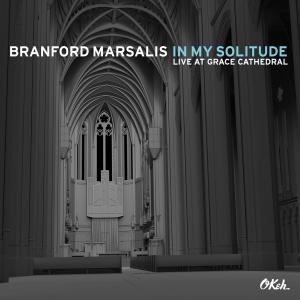 Branford Marsalis continues to prove that there is no context too large or small to contain his gifts. A reigning master of the jazz quartet format, dedicated champion of the duo setting, in-demand soloist of classical ensembles both chamber and orchestral, and session-enhancing special guest on an array of rock, roots and pop performances over the course of his career, his ever-broadening creativity and instrumental command have created the profile of a multi-dimensional musician with few peers among contemporary performers.
Branford Marsalis continues to prove that there is no context too large or small to contain his gifts. A reigning master of the jazz quartet format, dedicated champion of the duo setting, in-demand soloist of classical ensembles both chamber and orchestral, and session-enhancing special guest on an array of rock, roots and pop performances over the course of his career, his ever-broadening creativity and instrumental command have created the profile of a multi-dimensional musician with few peers among contemporary performers.
One setting notably absent from Marsalis’s resume until now has been the unaccompanied solo concert. This most daunting of formats poses particular challenges that were met with his signature blend of serious intent, technical rigor and emotional directness when Marsalis brought his soprano, alto and tenor saxophones to Grace Cathedral on October 5, 2012. This San Francisco landmark, the site of Duke Ellington’s Sacred Concerts in the Sixties and, since 1983, home to recitals at the centerpiece of the annual San Francisco Jazz Festival, proved an ideal setting for a program spanning early and post-bop jazz, baroque and contemporary classical music and spontaneous improvisation. The results can be heard on In My Solitude: Live at Grace Cathedral, the new album that Branford is releasing on his Marsalis Music via OKeh Records imprint on October 21, 2014.
As might be expected from someone with such a refined appreciation of musical excellence, Marsalis prepared by listening to solo recordings by a range of preferred artists, including Sonny Rollins, Steve Lacy and Sam Newsome from the jazz world as well as Anner Blysma, Angela Hewitt and Arno Bornkamp among classical players. He also committed himself to a program that transcended blatant displays of virtuosity. “From my time playing r&b and rock and roll, I can listen like a casual listener,” he notes, “but the challenge for 80% of any audience, for any kind of music, is hearing melody and improvisation based on melody. Playing a lot of notes can be impressive at first, but will quickly make every song sound similar. So everything I played at Grace Cathedral was based on songs with great melodies, not being too `notey,’ and utilizing the feeling in the room.” Read more »
